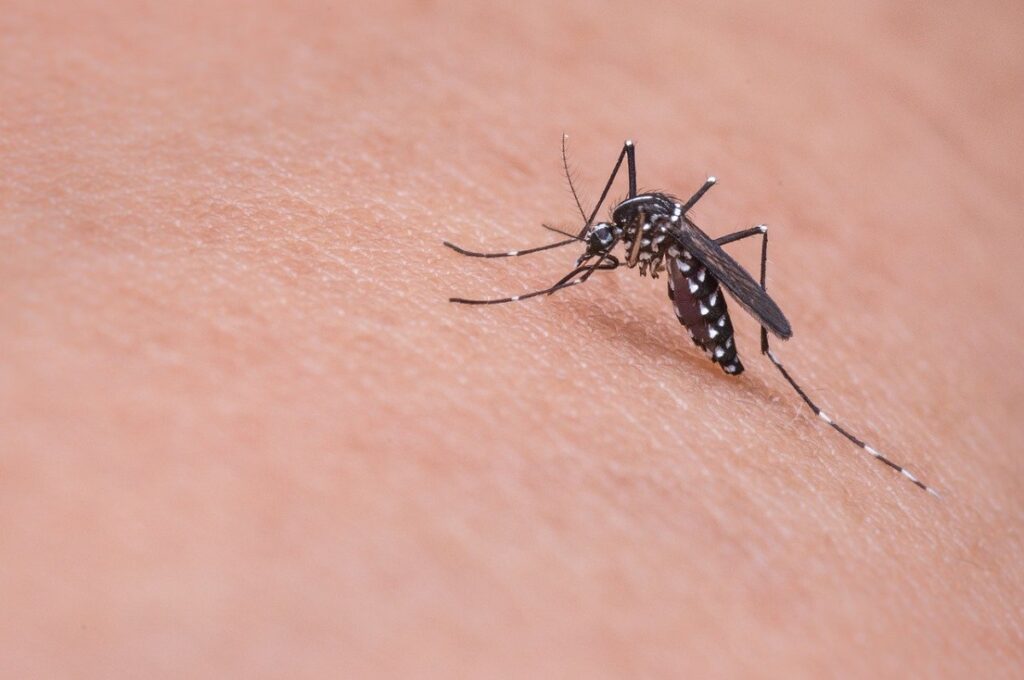Dengue fever has shaken health authorities around the world this year. Cases of the mosquito-borne disease have surged 30% compared to 2022, with an 18% increase since 2019, according to Save the Children.
According to the World Health Organization (WHO), over 5 million dengue cases were reported in 2023. Meanwhile, at least 5,000 have died from the disease globally.
In many countries where dengue runs rampant, Dr. Diana Rojas Alvares, WHO Team Lead on Arboviruses, warns that the virus demands “the maximal attention and response from all levels.” The biotech sector can play a key role in the response.
What is dengue?
Dengue, also known as “break-bone fever,” is a viral infection spread from Aedes aegypti mosquitoes to people. The common symptoms include high fever, headache, severe muscle and joint pain, nausea, and rash. However, most people who contract the virus show little to no symptoms.
Currently, there’s no official cure or treatment specifically tailored to dengue. Early detection is crucial to receive proper medical care to avoid severe dengue that could lead to death.
WHO notes that “warning signs to look out for include intense abdominal pain, persistent vomiting, bleeding gums, fluid accumulation, lethargy, restlessness, and liver enlargement.”
Dengue is most commonly spread in tropical and subtropical climates. Now, these climates are expanding.
Rise in temperatures = rise in infections?
With global warming, increasingly high temperatures, and record heat waves, dengue has now spread to new countries.
“Climate change has an impact on dengue transmission because it increases rainfall, humidity, and temperature,” said Dr. Alvares. “These mosquitoes are very sensitive to temperature.”
In addition to hot weather, experts say floods and droughts could also be reasons for the surge, adding that “stored water and heavy rains appeal to mosquitoes,” VOA reports.
An increase in dengue cases has been recorded this year in Europe, too, as 2023 has been the hottest year on record, says VOA, citing European climate service Copernicus.
Apart from climate change and warmer temperatures due to the El Niño weather phenomenon, the dengue uptick can also be attributed to the post-pandemic recovery of travel and tourism.
Some experts have pointed to urbanization and its impact on dengue infections and the rise of the so-called “informal urban settlements,” where residents have no access to fresh water or plumbing. This, as Time Magazine reported, combined with exposed litter and stagnant water, only further exacerbated the threats for the disease.
Breeding to stop mosquito-borne disease
Fumigation has been the most common method of mosquito control. However, researchers have warned the effectiveness of this method is waning, as Aedes aegypti have grown resilient to some of the chemicals.
An innovative approach is the Wolbachia method, led by the World Mosquito Program (WMP) in collaboration with Monash University. Their groundbreaking project can help combat dengue, in addition to other mosquito-borne diseases like chikungunya, Zika, and yellow fever.
WMP breeds Aedes aegypti mosquitoes that carry a naturally occurring bacteria called Wolbachia, commonly found in almost 50% of other insects. This bacteria reduces the mosquitoes’ ability to transmit the virus.
WMP claims the method is safe, bio-based – and, most importantly – effective.
Could biotech stop dengue?
Prevention is always the best option. Last year, Biotechnology Innovation Organization (BIO) member Takeda won approval from the European Commission (EC) for its dengue vaccine. The two-dose vaccine QDENGA® showed incredible results across 19 Phase 1, 2, and 3 trials with more than 28,000 children and adults, including four and a half years of follow-up data from the global, pivotal Phase 3 Tetravalent Immunization against Dengue Efficacy Study (TIDES) trial, Bio.News previously reported.
Gene editing could be another solution. UK-based Oxitec genetically engineered male Aedes aegypti mosquitoes to carry a gene lethal to female offspring, thereby limiting reproduction capacity.
The results are promising, though more research is needed to see if they can suppress the wild population, according to Good Day BIO. Oxitec is planning additional trials in Florida and California.
“Dengue has increased 30-fold over the past half century, driven by warming climates and the resulting increase in mosquito populations. Biotech can help us solve these issues in innovative ways—if animal biotech regulations keep up with the science,” said Good Day BIO.




